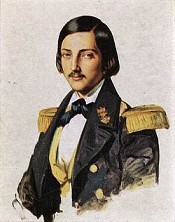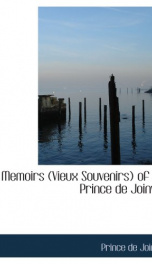Joinville Prince De

François-Ferdinand-Philippe-Louis-Marie d'Orléans, prince de Joinville (14 August 1818 - 16 June 1900) was the third son of Louis Philippe, duc d'Orléans, afterwards king of the French and his wife Marie Amalie of Bourbon-Sicilies. He was notable as an admiral of the French Navy. He was born at the Château de Neuilly, in Neuilly-sur-Seine, France. Educated for the Navy, he became lieutenant in 1836. His first conspicuous service was at the Bombardment of San Juan de Ulloa, in November 1838, commanding the Créole, when he headed a landing party and took the Mexican general Mariano Arista prisoner with his own hand at Veracruz. He was promoted to captain, and in 1840 was entrusted with the charge of bringing the remains of Napoleon from Saint Helena to France. He had married on May 1, 1843 in Rio de Janeiro, Princess Francisca of Brazil, Princess de Braganca, sister of Pedro II of Brazil. They had a son Pierre the duc de Penthièvre (1845-1919), also brought up to the navy. It is unknown whether their son ever did marry or fathered any children, however, the few records about Pierre do suggest that he lived to be in his seventies and died in Paris. The couple also had a daughter, Françoise who married her cousin Robert, Duke of Chartres in 1863 and had issue. Through this union, François d'Orléans is an ancestor of the present day Orléans claimant to the French throne, Prince Henri, Count of Paris, Duke of France In 1844 he conducted naval operations on the coast of Morocco, bombarding Tangier and occupying Mogador, and was recompensed with the grade of vice-admiral. In the following year he published in the Revue des deux mondes an article on the deficiencies of the French Navy which attracted considerable attention, and by his hostility to the Guizot ministry, as well as by an affectation of ill-will towards the United Kingdom, he gained considerable popularity. The Revolution of 1848 nevertheless swept him away with the other Orleans princes. He hastened to quit Algeria, where he was then serving, and took refuge at Claremont, in Surrey, with the rest of his family. In 1851, he announced his candidacy for the French presidential election to be held in 1852, hoping to pave the way for an eventual restoration. This attempt to become a second "Prince-President" was aborted by the December 2, 1851, coup by which the first Prince-President, Louis-Napoléon Bonaparte, effected his own ascension to the throne. In 1861, upon the breaking out of the American Civil War, he proceeded to Washington D.C., and placed the services of his son and two of his nephews at the disposal of the United States government. The prince de Joinville, bringing back Napoleon's ashes from Saint Helena. French troops under the prince de Joinville, disambarking on the island of Mogador, in Essaouira bay, in 1844 Otherwise, he was little heard of until the overthrow of the Second French Empire in 1870, when he re-entered France, only to be promptly expelled by the government of national defence. Returning incognito, he joined the army of general Louis d'Aurelle de Paladines, under the assumed name of "Colonel Lutherod", fought bravely before Orléans, and afterwards, divulging his identity, formally sought permission to serve. Gambetta, however, arrested him and sent him back to England. In the National Assembly, elected in February 1871, the prince was returned by two départements and elected to sit for the Haute-Marne. By an arrangement with Thiers, however, the prince did not take his seat until the latter had been chosen president of the provisional republic. His deafness prevented him from making any figure in the Assembly, and he resigned his seat in 1876. In 1886 the provisions of the law against pretenders to the throne deprived him of his rank as vice-admiral, but he continued to live in France, and died in Paris in June 1900. The prince de Joinville was the author of several essays and pamphlets on naval affairs and other matters of public interest, which were originally published for the most part either unsigned or pseudonymously, and subsequently republished under his own name after the fall of the Empire. They include Essais sur la marine française (1853); Études sur la marine (1859 and 1870); Guerre d'Amérique, campagne du Potomac (1862 and 1872); Encore un mot sur Sadowa (Brussels, 1868); and Vieux souvenirs (1894).
do you like this author?
What readers are saying
What do you think? Write your own comment on this book!
write a commentWhat readers are saying
What do you think? Write your own comment on this author!
write a commentBook list

Memoirs (Vieux Souvenirs) of the Prince de Joinville
Series:
Unknown
Year:
Unknown
Raiting:
4.5/5
This book was converted from its physical edition to the digital format by a community of volunteers. You may find it for free on the web. Purchase of the Kindle edition includes wireless delivery.
Show more
add to favoritesadd In favorites
Book list

Memoirs (Vieux Souvenirs) of the Prince de Joinville
Series:
Unknown
Year:
Unknown
Raiting:
4.5/5
This book was converted from its physical edition to the digital format by a community of volunteers. You may find it for free on the web. Purchase of the Kindle edition includes wireless delivery.
Show more
add to favoritesadd In favorites
What readers are saying
What do you think? Write your own comment on this author!
write a commentif you like Joinville Prince De try:
readers also enjoyed
Info about the author
Name:
Joinville Prince De
Born:
Influences:
none
Avg raiting:
4.5/5 (3)
Books:
What readers are saying
What do you think? Write your own comment on this author!
write a commentif you like Joinville Prince De try:
readers also enjoyed
Do you want to read a book that interests you? It’s EASY!
Create an account and send a request for reading to other users on the Webpage of the book!

